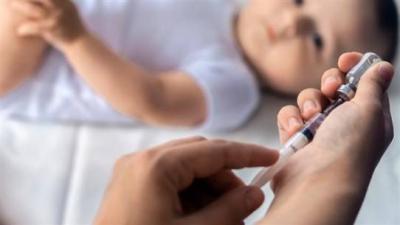Are the children of Lebanon truly at risk? This question worries many Lebanese families every time information about vaccine shortages or doubts regarding the quality of available vaccines in Lebanon resurfaces. However, this matter does not allow for much back-and-forth—our children's lives are not a game—and it is necessary to clarify the truth about the potential threats to their health and whether vaccines in Lebanon lack quality.
Dr. Randa Hamada, head of the primary healthcare department at the Ministry of Public Health, reassured that "vaccines are available in Lebanon, and they are of high quality and comply with the standards set forth by the World Health Organization, which oversees vaccine matters globally. They are also stored under the highest refrigeration standards using solar energy." Hamada described the rumors that the vaccines purchased by the Ministry of Health are not certified by the European Medicines Agency or the U.S. Food and Drug Administration, and that they may come from India or Korea, as "irresponsible talk," emphasizing that "the vaccines in Lebanon meet the highest global accepted standards." She highlighted that "the World Health Organization's approval of vaccines is renewed periodically; otherwise, they would not be in the market at all."
Regarding the vaccines that come through donations, Hamada explained that "the Ministry of Health has a budget of $6 million for purchasing vaccines, in addition to an extra budget from the European Union exceeding $10 million, provided through UNICEF, to include vaccinations for Syrian displaced persons present in Lebanon." She stressed that "Lebanon purchases vaccines and that the donated vaccines are procured in the same manner as those purchased by the ministry."
But what about the existence of higher-quality vaccines at pharmacies and private sector doctors? Hamada responded that "the same quality standards applied in the private sector are applied in the Ministry of Health because any vaccine entering Lebanon must be registered with the Ministry of Health and thus approved by the World Health Organization. This applies to the vaccines purchased by both the Ministry of Health and those bought by the private sector for sale through pharmacies." She added, "It is noteworthy that there is currently a shortage in introducing these vaccines to pharmacies due to the economic crisis, the devaluation of the currency, and the inability of the private market to meet some purchasing conditions."
Thus, the vaccine is available, and campaigns are ongoing. UNICEF announced last April that "Lebanese children are increasingly at risk of contracting preventable diseases through vaccination, such as measles, pneumonia, and polio. The multifaceted crises in Lebanon have led to a sharp decline in routine vaccination rates." Hamada attributed this to another reason, explaining that the vaccination rates have declined worldwide in the past two years due to the COVID-19 pandemic, with people prioritizing COVID vaccination over vaccinating children. Routine vaccinations declined globally by 40-50%, while in Lebanon, it dropped by 27-32% depending on the region.
To address this reality, the Ministry of Health, in collaboration with UNICEF and the World Health Organization, has initiated national campaigns to enhance routine vaccinations. A contract was made between the Lebanese Red Cross and UNICEF. Moreover, visits to homes across Lebanese districts have taken place, particularly in areas with the lowest vaccination rates, with efforts underway to reach the unvaccinated to immunize them and refer them to health centers.
While the crisis is substantial, raising awareness and disseminating correct information, especially medical and social, is part of the challenge. At the very least, it is a response to the psychological warfare that permeates Lebanese homes where safe spaces have shrunk. What is more concerning is the safety of their children and their health. So, vaccinate your children; regret will not be helpful.




